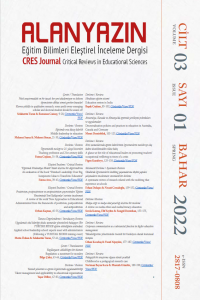Abstract
Şimdi hukuka dair düşünme şekillerimizi inceleyerek regülasyon meselesine dolaylı yoldan yaklaşalım. Siyasal toplumun hedefini toplulukların oluşturulması ve sürdürülmesi olarak gören bakış açısına göre, bir kamu hukuku sistemine gerçekten ihtiyacımız vardır ancak yalnızca son başvurulacak bir sistem olarak. Gerçekten de topluluğun kamusal müeyyideleri tetiklemeden yapılmasına müsaade edemeyeceği ölçüde tahammül edilemeyecek eylemler vardır. Böyle sınırı aşan bireyler, topluluk hayatına geri getirilmeden önce, kendi eylemlerinin mesuliyetini alacak kişiler olarak tespit edilmelidir. Burada hukuk son çaredir. İyi bir toplulukta ona mümkün olduğunca az başvurulacaktır. Hayatımızda hukuk hakkında bu şekilde düşündüğümüz alanlar, azalan bir ölçüde de olsa, halen mevcuttur. Bir evliliğin avukatların eline düştüğü anda muhtemelen ölüme mahkûm olduğunu hepimiz biliriz. Ve insan hayatında hukuka başvurulduğu anda, bunun bazı derin ahlaki ilişkilerin çoktan bozulmuş olduğunun bir göstergesi olarak algılandığı başka alanlar da vardır. Bunu, modern malpraktis (mesleki hata) davalarımız hakkındaki en önemli faktör olarak görmekteyim. Malpraktis davaları, tıp mesleğindeki büyük ihmallerden ve belli dereceye kadar hastaların doktorlara meydan okumaya fazla hazır olmalarından değil bilakis büyük ölçüde doktor ile hasta arasındaki eski güven ilişkisinin bozulmasından kaynaklanmaktadır. İnsanlar artık doktor-hasta ilişkisini temelde ahlaki bir ilişki olarak görmediklerinden ötürü hukuka başvurmakta sakınca görmemektedirler.
Keywords
References
- MacIntyre, A. (1980). Regulation: A Substitute for Morality. Hastings Center Report. https://doi.org/10.2307/3560503
Abstract
Let us approach the question of regulation indirectly by examining the ways in which we think about the law. From the standpointt hate nvisages the goal of political society as the creationa ndm aintenanceo f communities,w e do indeed need a system of public law, but only as a system of last resort.T herea re indeeda ctionss o intolerablet hat the community cannot permit them to be done without invoking public sanction. Individuals who thus transgress must be identifieda s answerablef or theira ctions before they can be brought back into the life of the community. Here the law is the last resort. In a good community it will be enforced as rarely as possible. There are still areas of our life in which, although to a decreasing degree, we even now do think about the law in this way. We all recognize that once a marriage gets into the hands of the lawyers, it is probably doomed. And there are other areas in human life in which resort to the law is still recognized as the sign that some deeper moralr elationshiph as alreadyb rokend own. I take this to be the most importantf act aboutc ontemporarym alpractice suits. Malpractice suits do not arise because of greater negligence by the medical profession and only to a small extent because of the greater readiness of patients to challenge doctors, but to a very large extent because of the breakdowni n an older relationshipo f trustb etween physician and patient. People feel free to resort to law because they no longer envisage the physician-patient relationship as an essentially moral one.
Keywords
References
- MacIntyre, A. (1980). Regulation: A Substitute for Morality. Hastings Center Report. https://doi.org/10.2307/3560503
Details
| Primary Language | Turkish |
|---|---|
| Subjects | Studies on Education |
| Journal Section | Reviews |
| Translators | |
| Publication Date | May 31, 2022 |
| Submission Date | April 21, 2022 |
| Published in Issue | Year 2022 Volume: 3 Issue: 1 |


